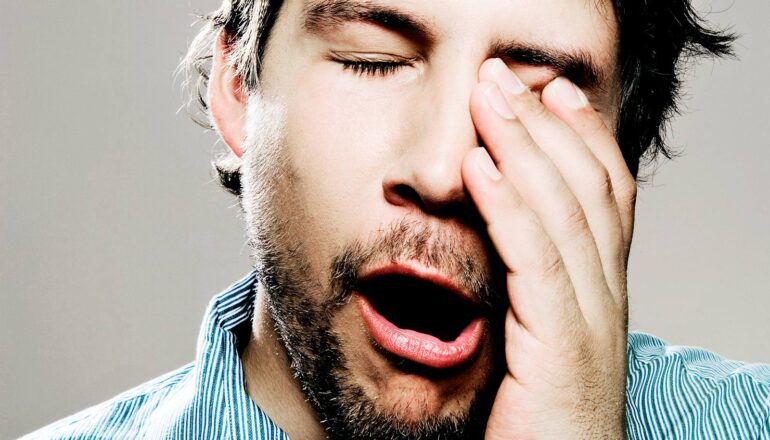How to ditch your bad sleep habits
- One in three adults don’t get the recommended 7 hours of sleep per night, leading to persistent sleep problems.
- Common culprits of bad sleep habits include addiction to electronic devices, everyday worries, stimulants, and excessive alcohol use.
- Sleep disorders like sleep apnea, restless legs syndrome, and insomnia can further exacerbate sleeplessness.
- A sleep expert recommends improving sleep hygiene by establishing a consistent sleep schedule, creating a relaxing bedtime routine, and avoiding screens before bed.
- By addressing these habits and making lifestyle changes, individuals can improve their sleep quality and wake up feeling refreshed and revitalized.

A sleep expert has tips for you to help improve your sleep hygiene and do away with bad habits.
Our addiction to electronic devices, everyday worries, excessive uses of stimulants and alcohol are all contributors to a persistent problem among Americans.
A lack of sleep.
About one in three adults do not get the recommended amount of sleep, according to the Centers for Disease Control and Prevention. These folks sleep about six hours or less. The recommended number of hours for an adult is seven hours, experts maintain.
Sleep disorders such as sleep apnea, restless legs syndrome, and insomnia can compound the problem of sleeplessness.
Here, Christian Agudelo, education director of the Evelyn F. McKnight Brain Institute and assistant professor of clinical neurology at the University of Miami Miller School of Medicine, digs into how you can improve our sleep.
The post How to ditch your bad sleep habits appeared first on Futurity.
link
Q. What is the recommended amount of sleep for an adult?
A. The Centers for Disease Control and Prevention recommend that adults get at least seven hours of sleep per night.
Q. How many adults in the US do not get the recommended amount of sleep?
A. About one in three adults, or approximately 30%, do not get the recommended amount of sleep.
Q. What are some common causes of persistent sleep problems among Americans?
A. Common causes include addiction to electronic devices, everyday worries, excessive use of stimulants and alcohol.
Q. What is sleep apnea, restless legs syndrome, and insomnia?
A. Sleep disorders such as sleep apnea, restless legs syndrome, and insomnia can compound the problem of sleeplessness.
Q. How can improving sleep hygiene help with bad sleep habits?
A. Improving sleep hygiene can help individuals ditch their bad sleep habits by reducing factors that disrupt sleep patterns.
Q. What is sleep hygiene?
A. Sleep hygiene refers to practices and habits that promote good sleep quality, such as maintaining a consistent sleep schedule, avoiding stimulants before bedtime, and creating a relaxing sleep environment.
Q. Why is it important to prioritize sleep?
A. Prioritizing sleep is essential for overall health and well-being, as it plays a critical role in physical and mental restoration.
Q. What can individuals do to improve their sleep hygiene?
A. Individuals can take steps such as avoiding electronic devices before bedtime, creating a relaxing sleep environment, and establishing a consistent sleep schedule.
Q. How can excessive use of stimulants affect sleep?
A. Excessive use of stimulants, such as caffeine or nicotine, can disrupt sleep patterns and make it difficult to fall asleep or stay asleep.
Q. What is the impact of not getting enough sleep on physical and mental health?
A. Not getting enough sleep can have negative impacts on both physical and mental health, including increased risk of chronic diseases, mood disorders, and cognitive impairment.

